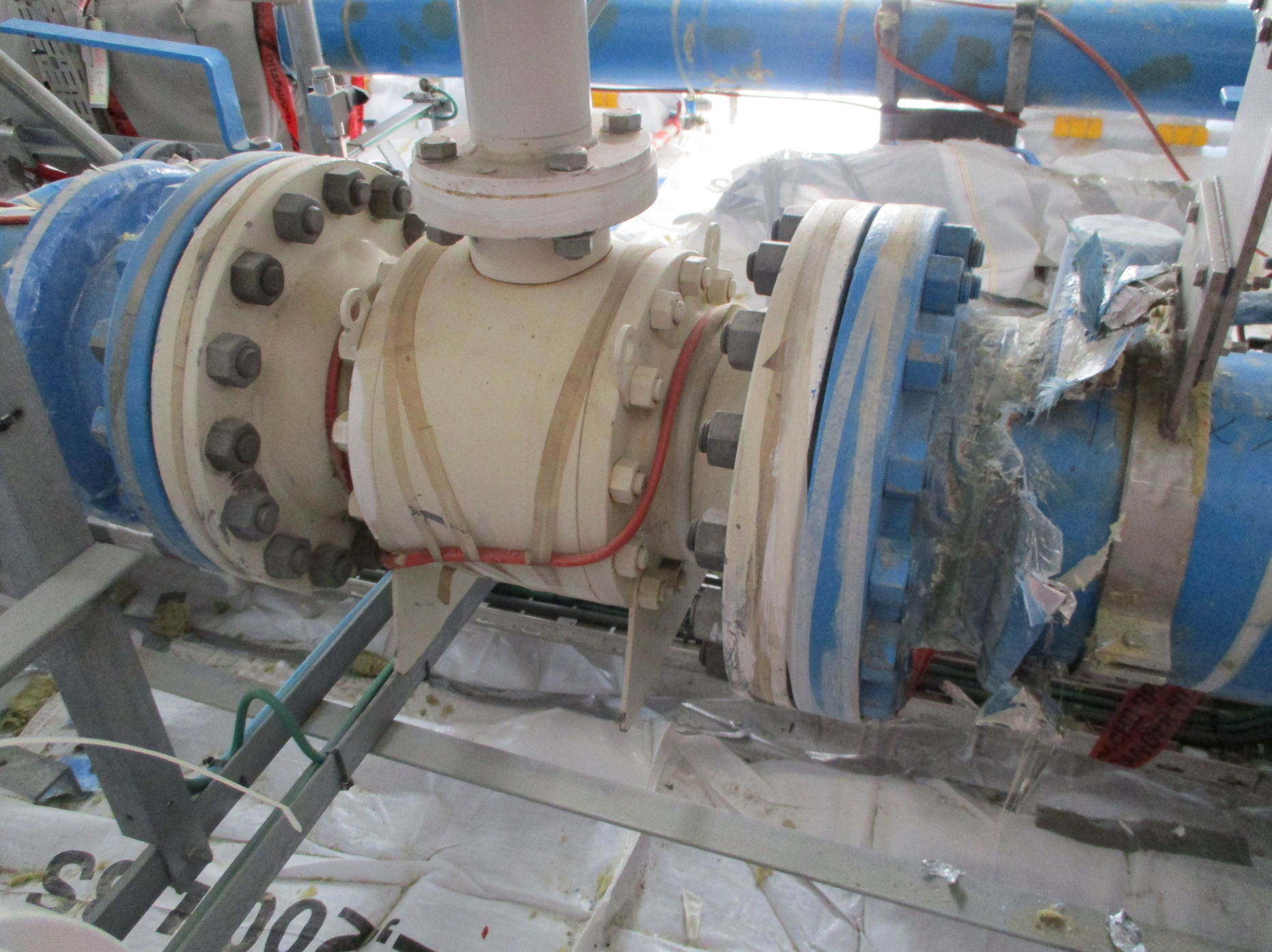Works for preparation of surfaces, restoration of anti-corrosion protection, installation of new insulation and application of protective coating layer.
ANTI-CORROSION COATING
SCOPE OF APPLICATION

- Upper surfaces of pipelines, vessels under pressure and tanks due to a wrong choice of heat insulation type
- Marine and offshore facilities
- Facilities located in humid climatic regions
Temperature:
from - 185 °С
to + 650 °С
from - 185 °С
to + 650 °С
The works are performed
without production stoppage
without production stoppage
ADVANTAGES
- The surfaces are ideal for use in cryogenic conditions
- UV resistance.
Prevents corrosion of uninsulated surfaces exposed to atmospheric effects - The use of Jotun and PPG coatings ensures corrosion resistance in extreme temperature range. It prevents most types of corrosion including external corrosion cracking
ALL SPECIALIST ARE CERTIFIED
UNDER NACE LEVEL 2, ICORR LEVEL 2!
UNDER NACE LEVEL 2, ICORR LEVEL 2!
OPERATING SEQUENCE
- Removal of protective coating layer and heat insulation
- Assessment of the condition of heating cable and paint coating of the pipeline
- Visual examination, detection of corrosion, nondestructive testing
- Removal of paint coating by means of specialized mild abrasive blast cleaning using Sponge-Get technology
- Performance of roughness tests and surface salt tests
- Application of new corrosion protection
- Installation of heat insulation and heating cable
- Installation of a protective coating layer
METALLIZATION
Thermal spraying, surface treatment or coating process where a broad range of metals and ceramics is sprayed onto the surface of another material
SCOPE OF APPLICATION
BASIC TYPES OF SPRAYING:
- To ensure corrosion protection for ferrous metals or alter their surface properties
- To improve parameters of wear resistance, firmness or thermal conductivity
BASIC TYPES OF SPRAYING:
- Flame spray
- ARC spray
- Plasma spray
- High velocity oxygen fuel spraying (HVOF)
ADVANTAGES
- Longer inspection periods — reduced costs of maintenance
- Long-term protection under the conditions of aggressive environments
- Withstands temperature changes
- Application in the wide range of environmental and climatic conditions
- Simple surface preparation
- High speed of application
- High resistance to mechanical stress
Zn
Used for spraying under the conditions of moderately low corrosion, for water tanks, bridges and conventional structures made of structural steel.
Al
Used under the conditions of a more severe corrosion, in sea coastal zones and under high temperature conditions, at oil drilling rigs.
ALL TYPES OF THERMAL EVAPORATION INVOLVES THE FORMATION OF MELTED METAL PARTICLES AND THEIR TRANSFER ONTO THE TREATED SURFACE WHERE THEY ARE HELD UP TO CREATE AN EVEN COATING
THE WORKS ARE PERFORMED
WITHOUT PRODUCTION STOPPAGE
WITHOUT PRODUCTION STOPPAGE



